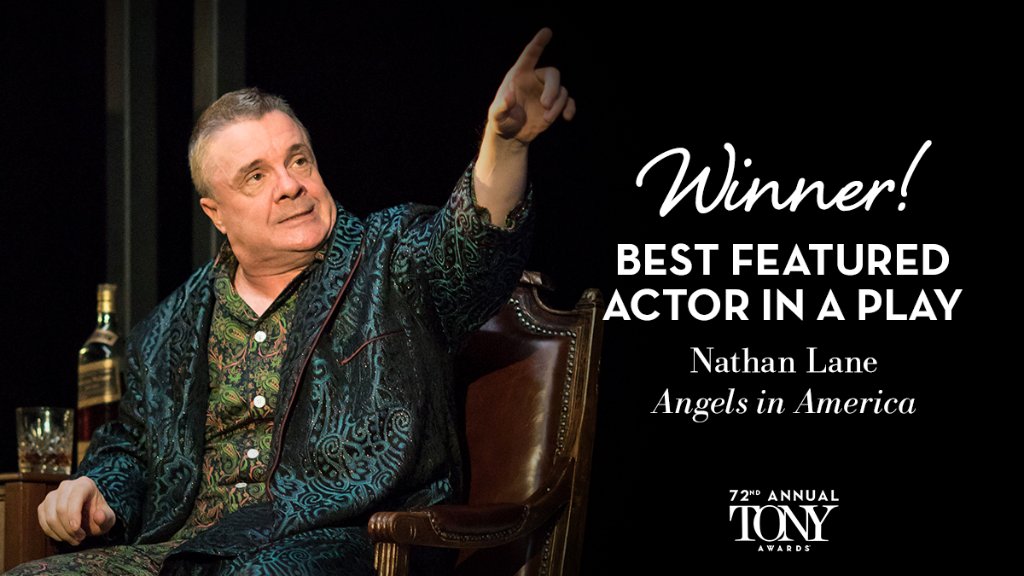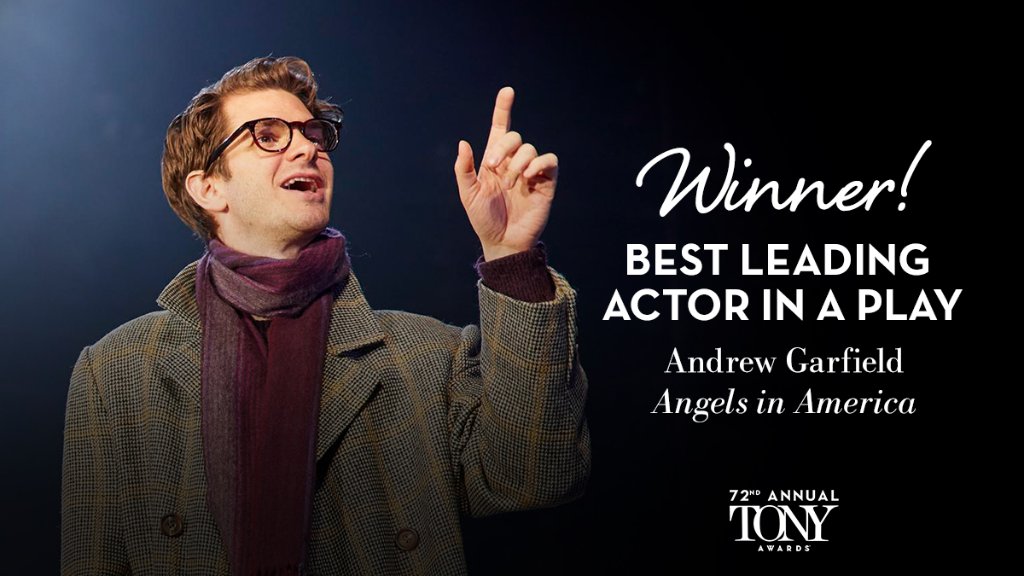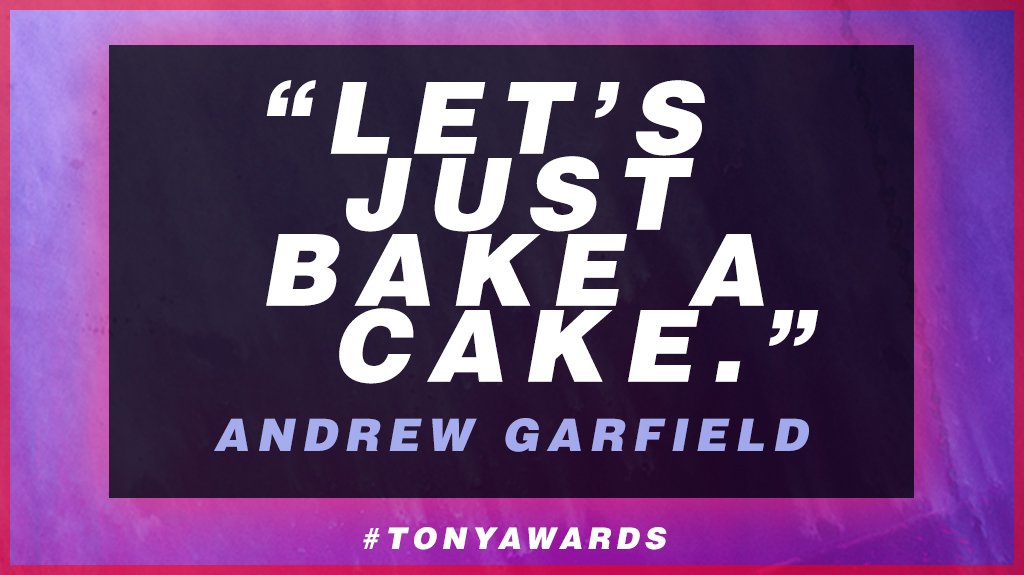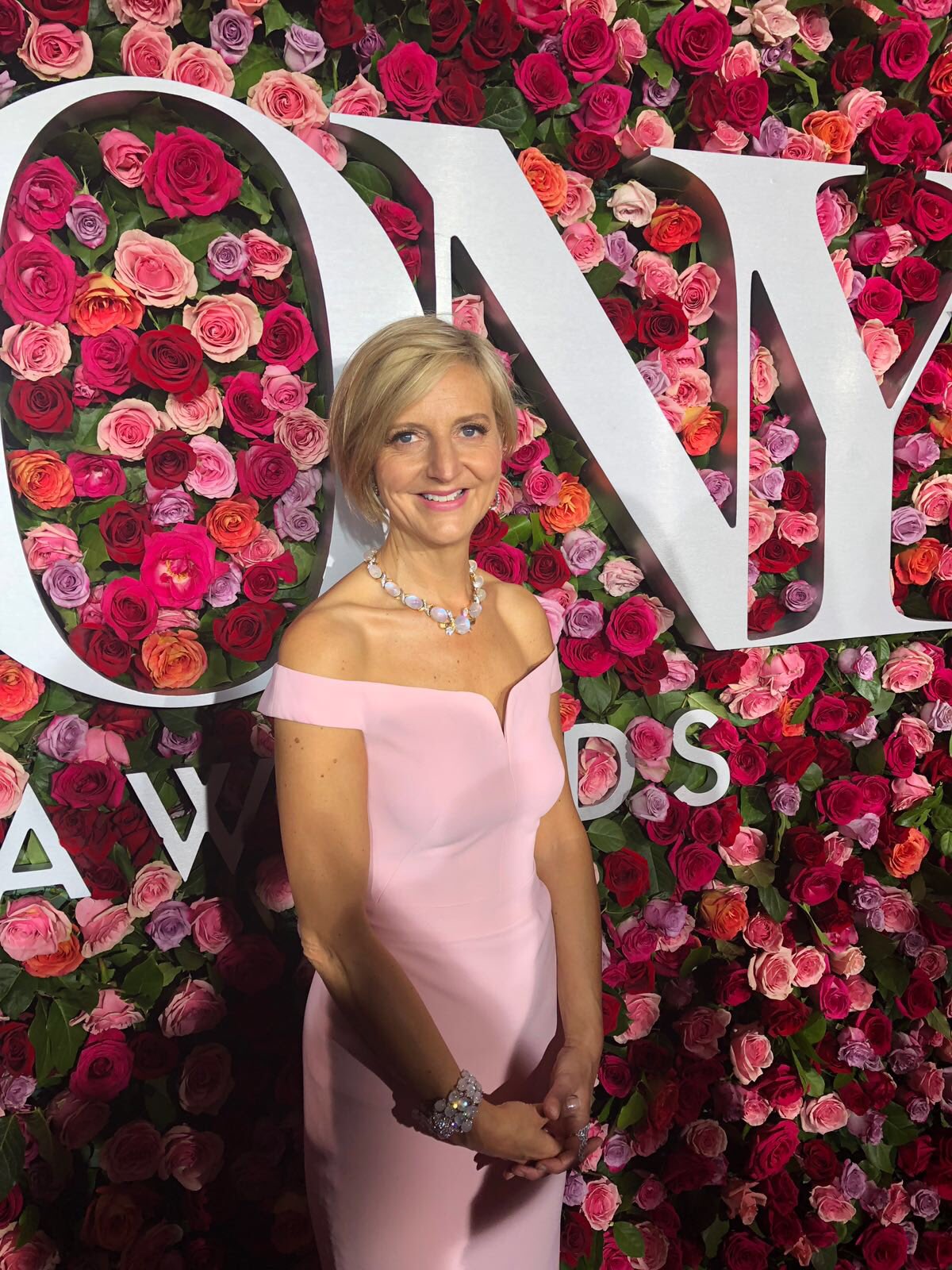More (Tony award) Life!
This blog
is going to be about Angels, and why being the most nominated play in Tony
history is important. But it's also a little bit personal. The Tony’s have
book-ended my Theatre Nerd career, and so my research career.
When I was 18 I flew to New York the night the Tony’s
were happening. It was my first solo trip to the city, and I was going to see
Hugh Jackman in The Boy From Oz
again. I'd seen it by accident the December previously, and fallen in love. Not
just with the show, but with theatre, and as every theatre kid does at some
point, with Broadway. That show changed me in that it's the first I really
connected with, but that show also put me on the path to my PhD. It is, for
those who don't know, the story of Peter Allen, Australian Singer-Songwriter
who died of AIDS. (Except they never mention the word AIDS in the show, but
that's another thesis altogether). And to this day I can't explain it but being
a slightly strange kid (evidently) that set me on a rabbit hole of research,
and years later I'm Dr-AIDS- in- Theatre.
Enough about me. Why did it matter that Angels
was the most nominated in Tony history? Oh, many reasons.
The Tony's more than London awards are the event of the New York season. Productions still live and die on Tony nominations, and while that's not the case for Angels having it included- and no less included in the opening, with the Angel flying in- is an indication the production has truly been welcomed back 'home'. That the British production of the American play garnered quite so many nominations (a record for a play at 11) shouldn't be underestimated in a theatre culture that mostly likes to recongise it's own.

Let’s
start with the actors. Firstly, of course the Tony’s recognised their ‘King of
Broadway’ Nathan Lane. And of course, he won. I’ll hold my hands up and say I
was skeptical about him in the role. But I will say this- he gets Roy Cohn, he
gets the charming devil-with-a-smile, but he also gets underneath his skin. I
read a criticism that audiences laugh at Cohn’s lines with Lane in the role.
Yes, and well they should- he charms them as the real Cohn does, and that makes
his evil more frightening, and when the audience cares about him more complex. Lane
may have been the predictable Tony win for Angels,
but it was no less deserved.
And the
women of the play. If I were feeling bitter I’d say it’s less a surprise they
were overlooked as winners, as the women of this play often get overlooked.
Thankfully Marianne Elliott has directed a production which places the women
firmly alongside the men in this piece. To that end the nomination for Denise
Gough’s Harper – a parallel and an equal to Prior in the play I would argue- is
an important recognition. The work Gough does is surpassingly brilliant, and
although there was no win for her, to see that acknowledged is important. Equally
so, and wonderfully so was the recognition for Susan Brown. An actress who has
said she’s striven for ‘invisible’ in a collection of roles that in Angels are often invisible. Brown
delivers heart wrenching as Joe’s mother Hannah (my dear ‘Mother Pitt’) to the
dark comedy of Ethel Rosenberg, to the oldest living Bolshevik and back again.
British theatre collectively gave a cheer when she was nominated, because we’ve
known for years just how brilliant she is.

And of
course ‘the Prophet’ Andrew Garfield. What is left to say about his performance?
(well personally a lot I hope I’ve still got a book to write). Each night- or
day- he lives that experience of Prior Walter. He commits to the experience of
going through what Prior goes through. And he gives an audience a raw, honest
feeling but somehow- in keeping with the play- a magical performance. More than
that though, in now almost two years of watching him take on this play, I love
how deeply he has committed in every way. Personally I’ve got something of a
radar for people who love and get this play and those who just give it lip
service. Garfield gets it. His interviews about it go beyond simple actor-promotion
and there’s a real sense of both his commitment to it, but also a love of what
this play stands for. And a sense of the universality of it. As he accepted his
Tony, Garfield reached out to “Countless LGBTQ people who have fought and died for
the right to live and love as we are created to”. It’s for this, that I as both
as an LGBTQ person, and lover of this play I thank Garfield. His work on stage
is astounding, his voice off is much appreciated.
And what
of the nominations for the play itself? Why is that important? Firstly,
recognition as part of the canon. That's not to say that Angels hasn't been
recognized for some time (a slew of Tony's the first time, a Pulitzer just for
starters). But there is something about acknowledging that, twenty-five years
later, back on Broadway this play is significant, and it is still relevant.
Because also let’s not forget what this play is
about- its subtitle 'A Gay Fantasia on National Themes'. It's easy to say that
being gay has changed from when Kushner first wrote, and certainly when he set
the play. No, it is not a community ravaged by plague any more. Yes, it is a
community with the right to marry, be equal in society. But all too often that
equality is only in name, it is tentative, and in danger, it is precarious
still. Yes, in our safe enclaves- including the theatre- in our 'liberal
bubbles' we might think all is fine for LGBTQ people. But we also know it is
not- especially in the current political climate. The welcome of this play on
Broadway, and yes, the external validation of awards tells the world 'we see
you, we see this play and the issues in it.'

And the issues are also political, Kushner's
rallying theatrical cry was not meant to be one that endured this long. Indeed,
it premiered on the eve of Clinton's election. Things were (to borrow from
British politics of the time) only supposed to get better. Well, we all know
how that turned out. Again, in recognizing the play with awards, in focusing
attention on it, that voice of politics becomes louder. Once again theatre
rising as a voice of dissent. But also, a voice of tolerance. That Kushner used
his acceptance speech to call for political action is no surprise- the play is
itself a rallying cry. That he combined it with theatre, camp culture and politics
is so Kushner, and so this play that it is the perfect punctuation for this
revival, for this play. That Garfield in accepting this award, dedicated it to
all those who had felt they didn’t belong, reaches to the heart of the play, and
what this revival means; it is still necessary because it reaches out to those
who don’t belong.
And then there's the reason the Tony's are
important in the history of this play. It hasn't been back on Broadway in 25
years. Since its original production. Parallel to this, the National Theatre
had an intrinsic role in bringing the original version of Angels to life (more
on that in an article of mine here). That the National Theatre flew these
Angels back to Broadway...that's something pretty special. That they did it
with a woman at the helm...that's something else.


No matter how long I write about this play, I
don't think I can quite do justice to Marianne Elliott's achievement directing
this play. And for my money she made far
more magic on stage than the Tony winner this year. It’s sheer magic that it
got to the stage; Firstly, convincing anyone to stage it again is itself
something. In today's economic climate, it's theatrical madness. In London the
National doing it, as in the 90s was the only sustainable option. The safety
net of subsidized theatre allows plays like this to happen. To then take that
risk and bring it back to Broadway...that was bold, it was a risk. The business
of it aside, artistically, to bring this production back- back to Broadway- and
wipe the slate clean in many respects is so bold. This play, particularly for
Broadway holds iconic status, and often Broadway doesn't warm well to messing
with its icons. Elliott went in with a production that doesn't pay lip-service
to the original- it takes the play at face value, treats it with respect but
not enshrined reverence, and gave it back to Broadway re-formed.
And so
the Tony’s are important. To recgonise this revival’s importance with a record
number of nominations is truly phenomenal. That it didn’t win them all doesn’t
matter. I will say it’s a travesty that the design teams weren’t rewarded,
because this production was also built with design in mind from the ground up,
and they have created some astounding work.
But what
mattered in fact was to see this play back up there. It is as urgent as it was
25 years ago. To hear Kushner and Garfield give speeches as politically urgent
as when this play was first staged shows how relevant it is. But artistically
also, to come full circle, back to Broadway, via the National Theatre. That was
truly something.
And the
award might have gone to another director on the night. But that a British woman
director brought this American classic home. And that Broadway welcomed it.
Well that’s something. And it may not be a Tony, but I personally want to thank
Marianne Elliott for that.
And thank you Tony Kushner, without whom none of this beautiful messy, important play would exist.
And thank you Tony Kushner, without whom none of this beautiful messy, important play would exist.



Comments
Post a Comment